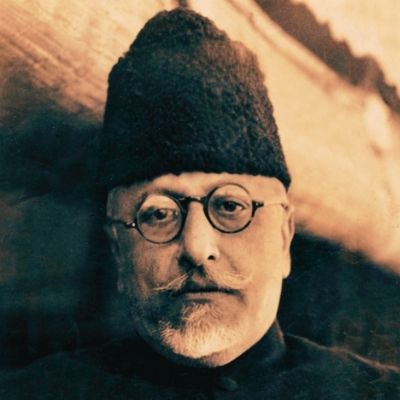Every year on November 11, we celebrate National Education Day across the country.The birthday of Maulana Abul Kalam Azad is observed as National Education Day.
Azad was our country’s first Minister of Education after independence. From 1947 to 1958, he successfully carried out his duties. He also served as India’s first Vice President. Since 2008, the Central Government has observed National Education Day.

Today, on the occasion of Maulana Abul Kalam Azad’s birthday, his contributions to education, national development, and institutional strengthening will be remembered. Special events are now held to raise awareness about the importance of reading. As a result, people are becoming more aware of the importance of education and plans are being made to send more children to school.
Read- World Science Day for Peace and Development 2021: Know the Importance
The first Minister of Education’s birthday, Today is National Education Day.
On November 11, the birthday of Maulana Abul Kalam Azad, India’s first Minister of Education after independence, National Education Day is observed. Abul Kalam was India’s first Education Minister.
Maulana Abul Kalam Azad served as the first Minister of Education of the Government of India as a freedom fighter. His full name is ‘Mohiuddin Ahmed,’ and he holds the title ‘Abul Kalam.’ His surname is ‘Azad.’ Abul Kalam was born in Mecca on November 11, 1888, to Alia Begum and Khairuddin Ahmed. He speaks Arabic, English, Urdu, Hindi, Persian, Bengali, and many other languages.
Maulana Azad… was a pivotal figure in India’s independence struggle. He supported Gandhiji’s “Non-Assistance” movement and joined the Indian National Congress in 1920. He was elected President of the Delhi Congress Special Session in 1923. He was imprisoned for ten years for his participation in the Khilafat movement, the Salt Satyagraha, and the Quit India movement. Maulana was a writer who penned ‘India Vince Freedom.’
Modern education’s pioneer
He was the Minister of Education in the first government formed after independence for 11 years, and he made significant contributions to educational reforms in the country. Created the groundwork for the country’s comprehensive education policy. He played an important role in the development of Indian culture, traditions, arts, music, and literature, which had been severely neglected during British rule. Following the country’s independence, special commissions for primary, secondary, and higher education were established in 1948 and 1952, respectively.
During his first five years as Minister of Education, he established a technical institute in Kharagpur in collaboration with prestigious institutes such as UGC, ICCR, AICTU, and CINR. Aside from these, academies for the development of music, literature, and fine arts have been established. He established the Indian Cultural Relations Autonomous Institutions Council, the Academy of Musical Drama, the Academy of Literature, and the Academy of Arts.
Bharat Ratna Awardee
In recognition of his contributions to Indian education, the Government of India bestowed the highest civilian honor, the Bharat Ratna, on Maulana in 1992. Furthermore, we are commemorating National Education Day on November 11, the birthday of the great man who enriched the Indian education system, established new trends in education, and paved the way for the country’s development. On February 22, 1958, Maulana Abul Kalam Azad was ordained.
